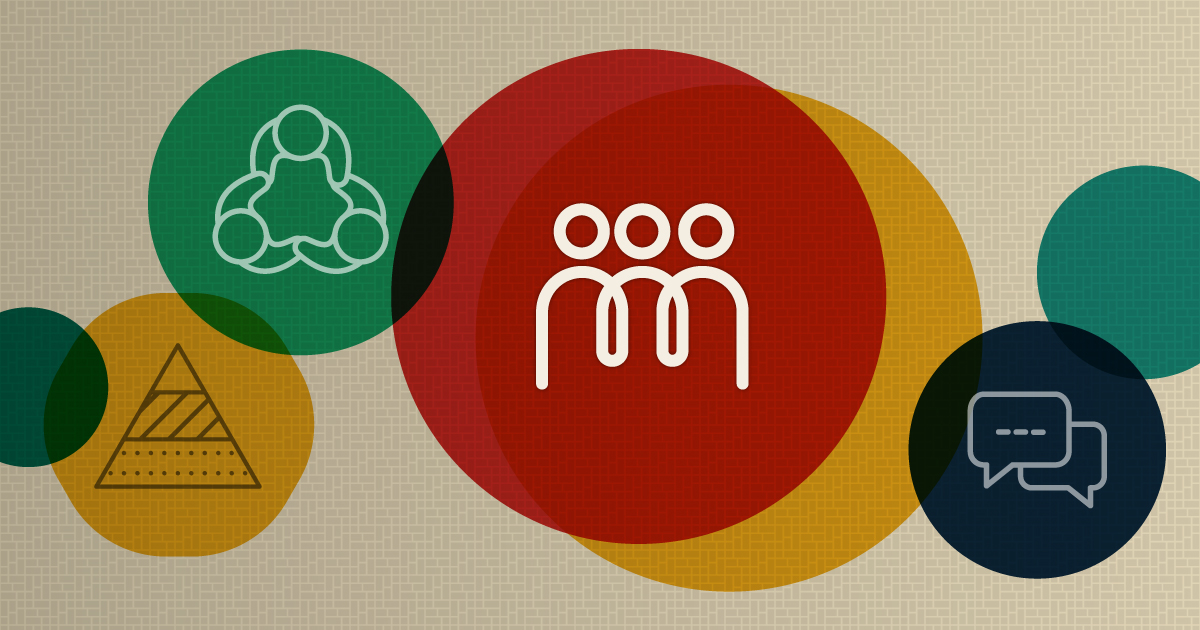As a Thai-immigrant, cisgender woman living in a culture of privileged white native-born cisgender men, I have experienced firsthand the culture, systems, and policies that have diminished my worth and harmed me by labeling me as other and fringe. Consequently, I see equity—a word that is so well worn at this moment—as central to all the work I have pursued during my two-decade career and as an imperative for Mathematica if we are to do lasting and impactful social good. I’m excited about the opportunities we have to advance equity, and proud of the ways we at Mathematica are contributing towards this goal. But I’m also deeply aware that we have a long road ahead – both within our own walls, and in our communities, country, and world – and I’m ready to embark on that journey hand-in-hand with our partners.
Since I began serving as the health foundations area director in 2018, I have learned that advancing equity in health requires purposeful internal work. This is often difficult and requires examining and changing our mindsets. In fact, colleagues jokingly say my mantra is “We need to do the internal equity work to do the external equity work.” In light of that, I have created space for staff working in the health foundations area to have frank discussion about how we show up as colleagues and partners to philanthropic organizations, small minority-owned and minority-led businesses, and most importantly, the people affected by our work. We have quarterly meetings where we openly discuss how and where our operating systems make it difficult for small businesses to work with us. We openly acknowledge that we are not always the experts and understand the importance of ceding power to communities served in the research process. We tackle important issues on how to better promote inclusion for our staff, clients, and partners.
These conversations have led to more flexibility in our approaches to contracting with small businesses. We’ve redefined what it means to be the “prime” contractor, moving from focusing on having final say on all project aspects to understanding our responsibilities for the contract and sharing the technical leadership. That means providing room for our partners to bring their own voice, their own expertise, and their own work directly to the client. And we’ve focused on ensuring that our relationships with partners are less transactional and more centered on transformation and reciprocity. We encourage each other to think beyond the limits of a specific project. We share short-term and long-term goals to ensure we support each other in achieving them. We’re transparent about our processes and systems, even those previously deemed proprietary, and we’re more up-front about the value that our approach brings to our work, as well as where we have room to grow and innovate based on learning from others. Doing this self-work has been humbling and hard, but also necessary and worthwhile.
Our progress over the past five years is a result of these honest conversations and being in community with ourselves and our partners. Our partners have supported us with their candor, telling us where we need to better center equity in our culture and external work. We are among the learners even as we are helping synthesize that very learning on what it takes to center equity in organizations. The result of the discourse has meant that we can intentionally focus on:
- Promoting inclusion in our workplace culture to ensure that those with diverse expertise and lived experiences want to stay and work as a part of Mathematica
- Engaging in hard conversations about how we show up to do equity work—acknowledging and checking the privilege and power that employment at Mathematica gives us
- Ensuring our systems make it possible and easy for historically underrepresented organizations and groups to engage with us and feel their voices honored
Each day we become better equipped to partner with philanthropy by bringing data, analytics, and methods to bear with a moral compass pointing to equity and justice as the destination.
And, I am happy to say that these partnerships are already having an impact on the communities we serve. With The Rockefeller Foundation, we generated evidence to pave the way for a $10 billion federal commitment to support in-school COVID testing programs that allowed students in grades K–12 to continue safely learning in person. Texans Care for Children drew on our work with the St. David’s Foundation to inform Texas legislation expanding Medicaid postpartum coverage to 6 months. Very soon after COVID-19 vaccines became available, we collaborated with Summit Health Cares and food pantries in New Jersey to combat vaccine mis- and disinformation in communities experiencing poverty through hyper-local data.
At Mathematica, our vision for the future is one where data and evidence are shaping an equitable and just world. It’s a lofty goal. To reach it, I know that means continuing to evolve how we conduct business. I know that our previous perspective as the sole experts will no longer suffice. As we continue to evolve, we offer our clients and partners focused on justice and innovation an opportunity to collaborate to advance health equity. For me, it’s important that our partnerships with philanthropy continue to bring staff joy and a sense of purpose and that we continue to progress together to transform and be comfortable with the discomfort that is inevitable when doing this critical work.



